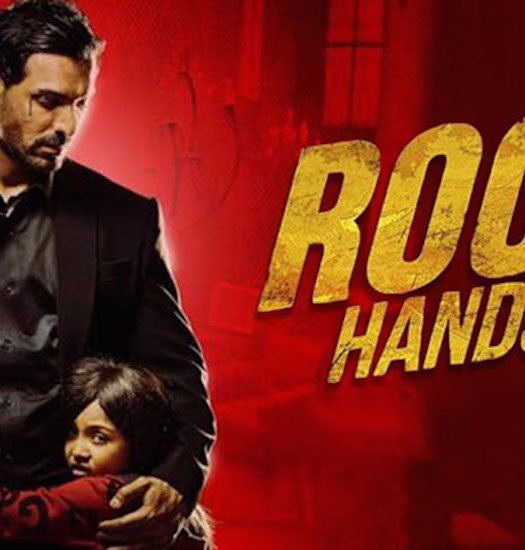The ‘need to be different’ is not always a good thing: Rasika
One look at her photograph from Nandita Das‘ Manto, and you know that there couldn’t have been anyone better than Rasika Dugal to play the legendary writer’s wife in his biopic.
The actor who believes in staying true to the director’s vision has effortlessly transformed herself into Safia Manto. As we catch up with Rasika, who is currently enjoying revisiting Manto’s works, we get to know more about her preparation for the film, her role in Bombay Talkies 2 and the experience of working with two brilliant female directors.

Rasika Dugal as Safia Manto in Manto
What does it mean to you play a character like Safia Manto?
It is a beautiful part. And the magical combination of a director like Nandita (Das) and a co-actor like Nawaz (Nawazuddin Siddiqui) makes it all the more exciting.
I feel empowered while reading Manto and I am grateful to the film for introducing me to so much more
How have you been preparing to get into the skin of the character, Safia Manto. Also how are Nawazuddin and you working on your chemistry?
There is not much written about Safia Manto. There are some mentions of her in Ismat Chughtai’s writings, some in Ayesha Jalal’s book but most of my knowledge on her is through Nandita’s extensive research. She has spent a lot of time with Safia and Manto’s daughters while she was scripting. She got a lot of anecdotal information, which has found it’s way into the script. So, most of my work was already done (smiles).
Besides that, I have been taking Urdu classes, reading a lot of stories and essays written by Manto and other writers around his time. I have thoroughly enjoyed this (process) and I think much of this is going to stay with me long after the film is over.
As for the way she dressed, there are plenty of photographs to guide us. And Sheetal Sharma (costume designer) and his team have done a wonderful job. The clothes feel like my own and that just makes my job so much easier.
Nawaz is an interesting actor and person. I felt instantly comfortable around him when we met for the film. I think chemistry comes simply by two actors listening to each other and paying attention to each other. And most experienced actors know that. So that is something I am not worried about at all.
Was this (film) your first encounter with Manto’s writings or have you read his works earlier as well?
I was first introduced to Manto’s works when I was a student at Lady Sri Ram college in Delhi. I have since then been reading his works and that of other writers from the progressive writers movement. But work on the film has made me read so much more. For instance, I probably would have never read a volume of essays written by him. And that one is a gold mine. His writing is so fearless and so beautiful. I feel empowered while reading Manto and I am grateful to the film for introducing me to so much more. Hopefully, the experience will be similar for the audiences of the film.
I don’t feel the pressure to play a character which is in ‘contrast’ to one I have played before

Rasika Dugal
Having been part of a period, partition era film like Qissa, was it any easier this time round to understand that era?
I believe, partition is something people of my generation just inherently understand. It is as if the collective memory of a society just seeps into you even though you weren’t there when it happened. A lot has been written about and made about partition, which had a deep impact on me while growing up. Govind Nihalani’s ‘Tamas’, Urvashi Butalia’s book ‘The Other Side of Silence’, Kirti Jain’s play ‘Aur Kitne Tukde’ are a few. So I think the connection was always there. Qissa, of course, brought me closer to the grief of being uprooted and displaced.
You’ve also been signed for Bombay Talkies 2. Could you tell us about your role and what excited you to get on board?
I was excited because I think Zoya (Akhtar)’s films are intelligent and a lot of fun. And I was looking for an opportunity to work with her.
I play a domestic worker in the film. The scene I am in is like a comment on the film. So, in that sense, I think it’s important. I totally enjoyed working on the character with Zoya. It was a fun rehearsal process and shoot.
It is always wonderful to work with directors who give you room to experiment
Is this going to be a contrast to what we have seen you play?
I don’t feel the pressure to play a character which is in ‘contrast’ to one I have played before. I think the ‘need to be different’ in different roles is not always a good thing for an actor. I do feel I need to be true to a situation and to a director’s vision. Scripts are different, directors are different, stories are different. As an actor you just have to be present for all of them and that in itself will be interesting to an audience. And it will automatically be different from what you have done before.
Working with two powerhouse female directors like Nandita Das and Zoya Akhtar – what would you say about the experience and learnings?
Zoya and Nandita are two powerhouse directors. And they happen to be women. It is always wonderful to work with directors who give you room to experiment.



